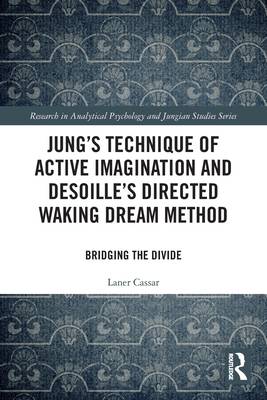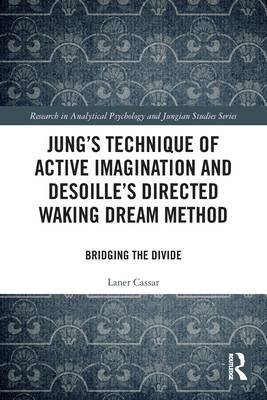
- Afhalen na 1 uur in een winkel met voorraad
- Gratis thuislevering in België vanaf € 30
- Ruim aanbod met 7 miljoen producten
- Afhalen na 1 uur in een winkel met voorraad
- Gratis thuislevering in België vanaf € 30
- Ruim aanbod met 7 miljoen producten
Jung's Technique of Active Imagination and Desoille's Directed Waking Dream Method
Bridging the Divide
Laner CassarOmschrijving
Jung's Technique of Active Imagination and Desoille's Directed Waking Dream Method brings together Carl Jung's active imagination and Robert Desoille's "rêve éveillé dirigé/directed waking dream" method (RED). It studies the historical development of these approaches in Central Europe in the first half of the 20th century and explores their theoretical similarities and differences, proposing an integrated framework of clinical practice.
The book aims to study the wider European context of the 1900s which influenced the development of both Jung's and Desoille's methods. This work compares the spatial metaphors of interiority used by both Jung and Desoille to describe the traditional concept of inner psychic space in the waking dreams of Jung's active imagination and Desoille's RED. It also attempts a broader theoretical comparison between the procedural aspects of both RED and active imagination by identifying commonalities and divergences between the two approaches.
This book is a unique contribution to analytical psychology and will be of great interest for academics, researchers and post-graduate students interested in the use of imagination and mental imagery in analysis, psychotherapy and counselling. The book's historical focus will be of particular relevance to Jungian and Desoillian scholars since it is the first of its kind to trace the connections between the two schools and it gives a detailed account of Desoille's early life and his first written works.
This book was a Gradiva Award nominee for 2021.
Specificaties
Betrokkenen
- Auteur(s):
- Uitgeverij:
Inhoud
- Aantal bladzijden:
- 232
- Taal:
- Engels
- Reeks:
Eigenschappen
- Productcode (EAN):
- 9780367518622
- Verschijningsdatum:
- 29/04/2022
- Uitvoering:
- Paperback
- Formaat:
- Trade paperback (VS)
- Afmetingen:
- 156 mm x 234 mm
- Gewicht:
- 331 g

Alleen bij Standaard Boekhandel
Beoordelingen
We publiceren alleen reviews die voldoen aan de voorwaarden voor reviews. Bekijk onze voorwaarden voor reviews.











